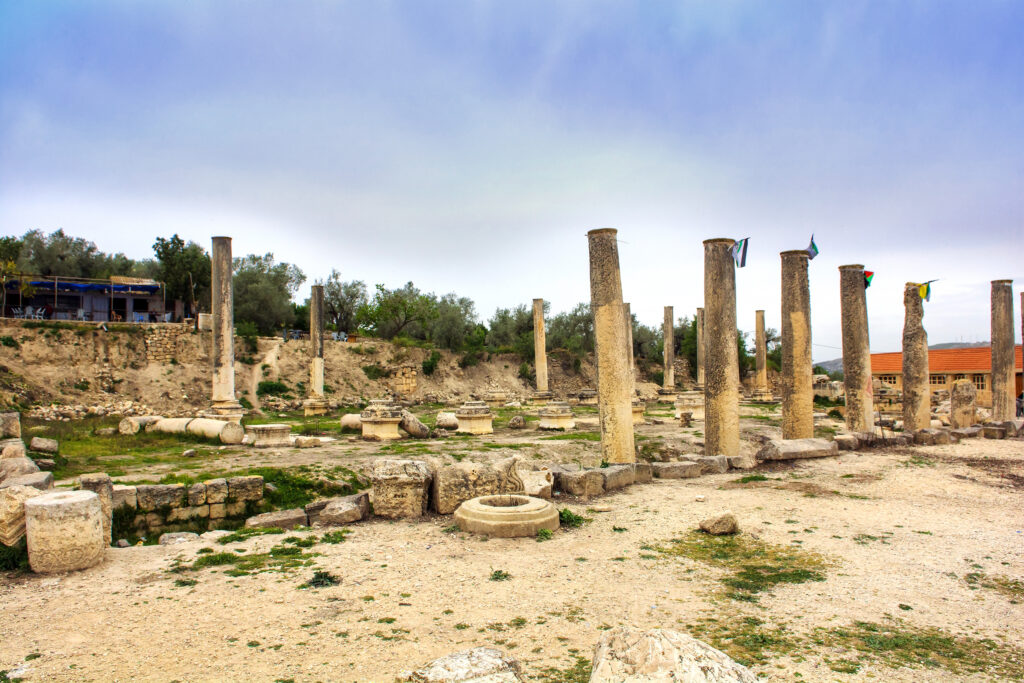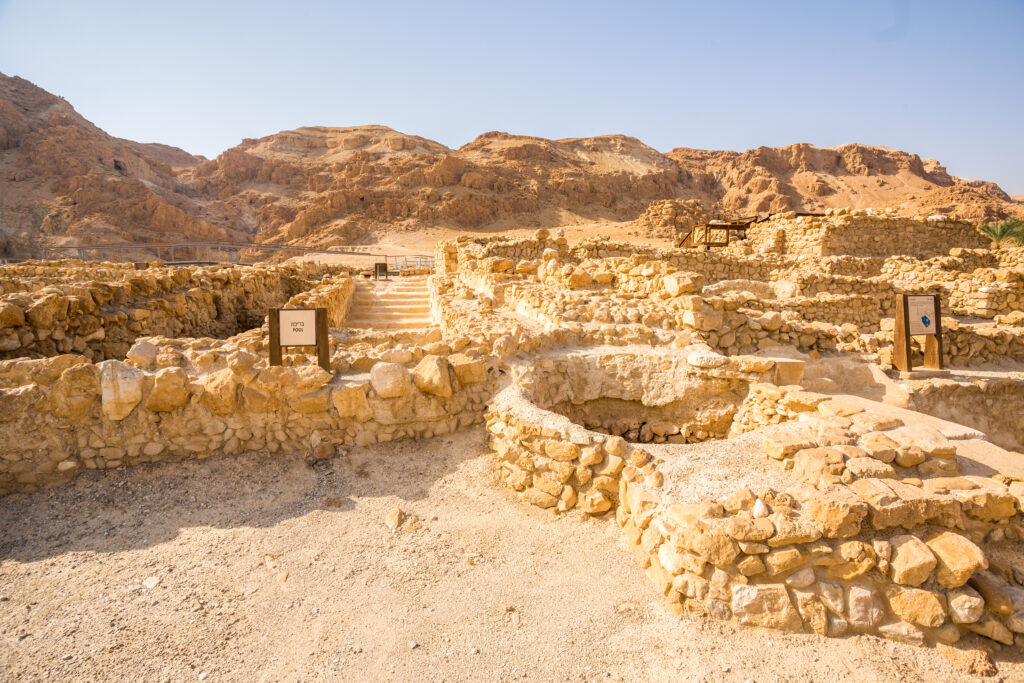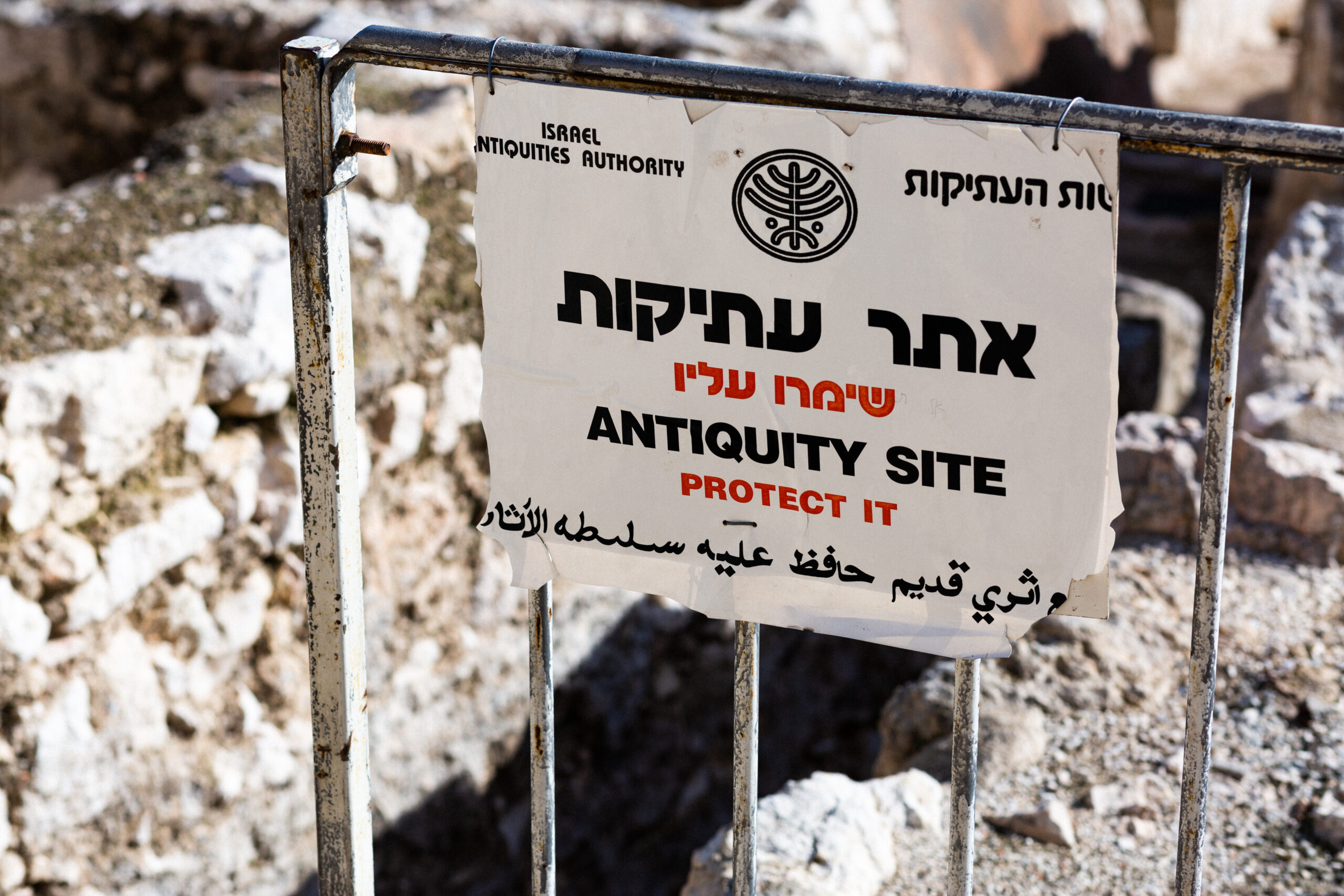Growing international pressure on archaeological research in Judea and Samaria is threatening the preservation and study of sites crucial to understanding biblical history, according to Israeli heritage officials and archaeologists.
The issue came to the forefront this week at Jerusalem’s first International Conference on Archaeology in Judea and Samaria, where Heritage Ministry Director-General Itai Graneck highlighted the challenges faced by researchers in the region.
“We are dealing with an intolerable reality where researchers are prevented from publishing studies about findings from Judea and Samaria due to foreign political considerations,” Graneck said at the conference opening. “Leading scientific journals are rejecting articles from the region, and researchers who dare to publish find themselves boycotted even when trying to publish research about findings from within Israel proper.”
The academic boycott has created a paradoxical situation where efforts supposedly aimed at protecting antiquities are actually hindering their preservation and study. Archaeological experts note that the region contains over 2,600 documented historical sites, many of which are fundamental to Jewish, Christian, and Islamic heritage.
So many great papers on this 3rd day of the 1st international conf. on Archaeology & Site Conservation of Judea and Samaria, but I especially enjoyed Jeffery Chadwick on Hebron, Kyle Keimer on Tell en-Nasbeh & David Ben-Shlomo on Auja Foqa. So much exciting archaeological work! pic.twitter.com/NSdLrf7BeY
— Ralph K. Hawkins, Ph.D. (@Ironage1) February 12, 2025
The impact of the boycott extends beyond publication barriers. Researchers face obstacles in securing international funding, participating in academic collaborations, and even having their students accepted into advanced degree programs at global institutions. This isolation of scholars from the international academic community directly affects research quality and the expansion of historical knowledge.
Recent events have highlighted the urgency of addressing this issue. The Israeli government recently approved a historic 110 million shekel investment in developing and preserving archaeological and heritage sites in Judea and Samaria. This decision represents what Graneck called “a fundamental shift in governmental approach to archaeological and heritage values in the region.”
The timing is particularly critical given reports of ongoing damage to archaeological sites in the region. David Weinberg, a senior fellow at the Misgav Institute for National Security & Zionist Strategy, has documented cases where important historical sites have suffered irreversible damage. “Three thousand years of heritage is at risk of near-complete elimination within just 30 years,” Weinberg warned in a recent analysis.
In response to these challenges, the Heritage Ministry announced plans to join an Israeli delegation to the NRB (National Religious Broadcasters) 2025 conference in the United States, taking place February 24-27. Working in coordination with Israel365, a Jewish organization dedicated to strengthening Christian support for Israel and promoting Israel’s rights to the biblical heartland of Judea and Samaria, the ministry will attend the NRB International Christian Media Convention. The ministry plans to bring a selection of ancient artifacts discovered in Judea and Samaria, allowing conference attendees to see tangible evidence of Israel’s ancient roots in the biblical heartland. This premier gathering for Christian communicators in radio, TV, film, and digital media will serve as a platform to educate influential Christian media members about the biblical significance of Judea and Samaria.

Critics of Israeli archaeological activities in the region, aligned with broader political movements opposing Israeli presence in Judea and Samaria, have voiced strong opposition to both the Jerusalem conference and the ongoing research. Dr. Sarah Al-Hamid, Professor of Archaeology at Birzeit University, argues that the archaeological work violates international law. “These activities are part of a broader political agenda that ignores the rights of local populations and their connection to these heritage sites,” she stated. “Archaeological research should benefit all residents of the area, not just serve one narrative.”
The Civil Administration’s Archaeology Unit, responsible for managing over 2,600 sites in the region, emphasizes that many of these locations represent cornerstone discoveries in world history. These include the Qumran Caves, where the Dead Sea Scrolls were discovered, and ancient Shiloh, the first religious center of biblical Israel.
Despite the boycott’s challenges, Israeli authorities are maintaining their commitment to scientific rigor and preservation. The Archaeology Unit continues to conduct rescue excavations, scientific surveys in cooperation with academic institutions, and community excavations involving educational institutions.

The Jerusalem conference, scheduled to run through February 13th at the Dan Jerusalem Hotel, marks a new initiative to establish annual international research collaboration in regional archaeology, potentially creating a framework for bypassing boycott restrictions while maintaining academic standards.
As the situation develops, officials from Israel’s Heritage Ministry stress that the preservation of these sites isn’t just an Israeli interest but a matter of protecting world heritage. The conference and new government initiatives represent steps toward ensuring that political considerations don’t overshadow the scientific and historical significance of archaeological research in the region.





